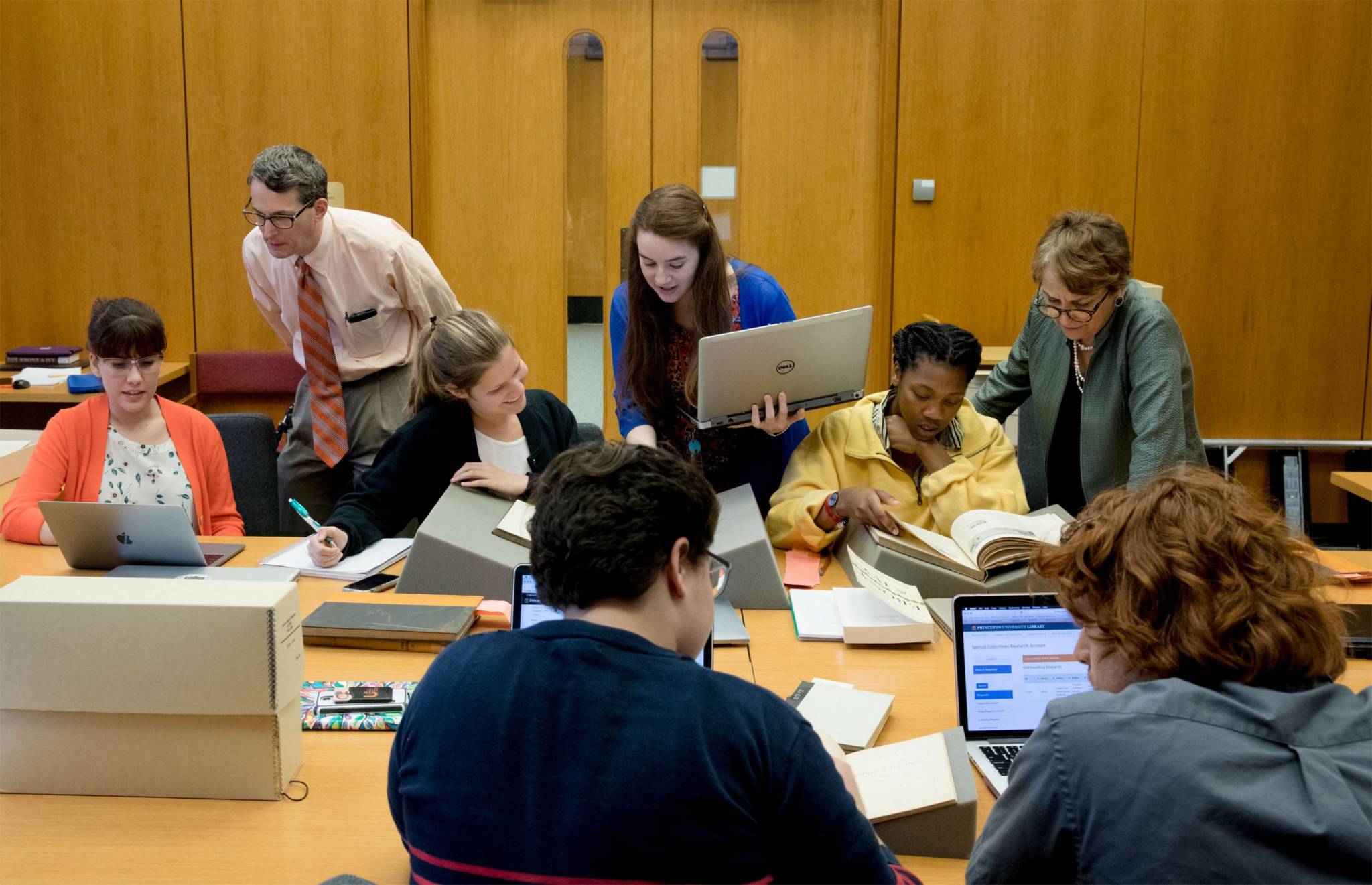Magic grants support new faculty-led projects that reimagine how the humanities are conceived or taught. Awards range from $5,000 to $50,000 and are intended for:
- First-time projects
- Academic Year 2026-27
- Innovative formats or approaches (not “academic business as usual”)
- Projected funded solely or primarily by the Humanities Council.
In rare cases, two-year grants may be awarded for launching a single cohesive intiative (e.g., a yearlong working group followed by a team-taught course), not for repeating activities routinely.
Magic grants do not fund individual faculty research–except for “Team Teaching Grants in Humanistic Studies,” which offer $7,500 summer stipends to faculty from divergent departments or disciplines developing a new team-taught course in Humanistic Studies. These grants to not provide teaching relief or additional FTE.
Mission Alignment
Projects should reflect one or more of the following goals:
- Encourage bold, status-quo-defying intellectual work in the humanities
- Foster interdisciplinary collaborations and team-teaching
- Expand the curriculum with new modes of thought
- Provide students access to unique educational experiences
- Support humanities-STEM collaborations
Course-Related and Group Travel
- Up to two course-embedded break trips per year may be fully funded (up to $50-70K). Logistics must be managed by the course’s home department.
Eligibility
Eligible applicants include:
- Assistant, associate, and full professors
- Senior Lecturers, University Lecturers, and Professors of the Practice
- Other faculty, research, and administrative members of the University may be co-proposers.
- Lecturers, research scholars, and postdoctoral fellows on continuing appointments may apply if:
- The project supports pedagogy (e.g., new courses; student travel in an educational context; innovative teaching materials/installations);
- The department chair endorses the proposal.
- For course-related activities, the department confirms the course offering and provides salary.
Project Eligibility Checklist:
- New, first-time endeavor
- Magic is sole or primary funder
- Project is carried out during AY 2026-27 (July 2026-August 2027)
- One-year duration
- Reimagines the humanities
- Led by Princeton faculty, anchored in the Princeton University community.
- Not eligible for traditional University funding.
- Preference for applicants without recent major Humanities Council grants
If you have questions about eligibility of a project or its components, please contact Kathleen Crown, Executive Director of the Humanities Council, for guidance as early as possible and well in advance of the application deadline.
How to Apply
Submit the online application form with the following documents as attachments:
1. Abstract (max 250 words):
- Who is involved
- What the funds support
- Where, when, and how the project will be carried out, including start and end dates and locations
- Why it’s innovative and important.
The abstract should be able to stand on its own as an overview of the project, covering all key aspects and goals of the proposal.
2. Full Proposal and Budget (2-5 pages)
- Title, proposer(s), departments
- Innovation and relevance to the humanities
- Benefit to Princeton University faculty and students
- Participants (Princeton and external affiliations)
- Detailed budget (travel, lodging, food, materials, honoraria)
- Note: Honoraria benchmarks–$750-$1500 for public lectures and $75-$500 for a class visits/ conference participation.
- Proposals may be reviewed by relevant campus offices and faculty experts.
3. Chair/Director email or note of support
Proposals require a brief statement from the Chair/Director of the academic unit committing to manage the funds and any needed logistical support. The statement may be uploaded by the applicant, or may be sent directly to Kathleen Crown (kcrown@princeton.edu).
Additional Resources
- Dean For Research New Ideas in the Humanities
- 250th Anniversary Fund for Innovation in Undergraduate Education
- For digital components, consult the Digital Scholarship office at Princeton University Library
- For computational humanities, consult the Center for Digital Humanities
Deadlines and Grant Cycles
There will be one cycle for Magic Grants in the academic year 2025-26.
- November 15, 2025: Application portal will open.
- January 30, 2026: Deadline to submit application.
- February 2026: Executive Committee deliberations.
- March 2026: Notification of decisions.
- July 2026: Funds disbursed after start of FY26 (begins July 1, 2026).
- May 15, 2027: Final project reports due via online form (links and reminders will be provided)
See the full list of Humanities Council funding opportunities.
















